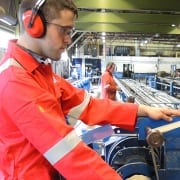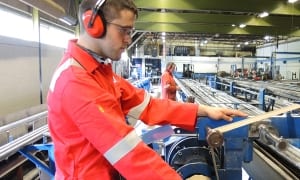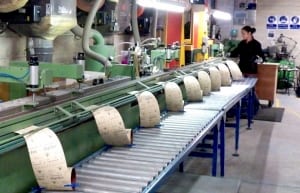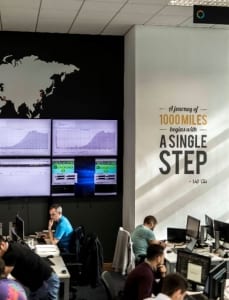CyberEurope spotlights opportunities for Irish cybersecurity companies in Europe
Irish cybersecurity companies and market experts from all over Europe gathered last week in Enterprise Ireland’s East Point campus for CyberEurope – a conference that explored opportunities, challenges and strategies for Irish businesses exporting to the UK and Europe.
CyberEurope also saw the release of a research report commissioned by Enterprise Ireland, with market scoping analysis delivered by strategy and risk-management consultancy CEIS.
This new detailed report, titled The European Cybersecurity Market: Mapping the Opportunities and Route to Market for Irish SMEs, presents an overview of export opportunities for Enterprise Ireland-backed companies in eight target countries: Belgium, France, Germany, Italy, the Netherlands, Poland, Spain and the UK, and international institutions: European Union and NATO.
Download the report’s key summaries now
CyberEurope report highlights
While there are significant differences between the cybersecurity markets of the eight countries studied, Enterprise Ireland’s research demonstrates continued levels of growth across each.
The report identifies three “opportunity clusters” that can be used as a guide when assessing markets: the first groups the UK, France, Germany and the Netherlands, the second is Belgium, and the third includes Poland, Spain and Italy. Each cluster market is categorised based on macro factors including market size and maturity, competition level, policy framework and market accessibility.
These opportunity clusters are intended to help Irish businesses to prioritise target export markets and to inform their decision to invest in either more challenging and more mature high value-added markets, or to focus efforts on less mature and less saturated markets. 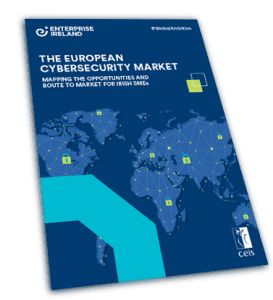
The report also makes recommendations for companies entering a new market, such as establishing a local presence, obtaining relevant European or national certifications, and to leverage hot and trending topics of interest in the cybersecurity sector’s sub-segments.
Download the full report: The European Cybersecurity Market: Mapping the Opportunities and Route to Market for Irish SMEs
Exciting time for the Irish cybersecurity sector
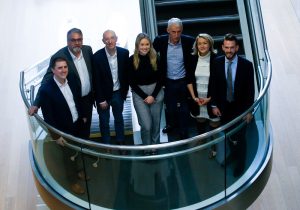 The report and related event are part of a drive to create visibility for Irish cybersecurity companies among potential overseas buyers, partners and customersaccording to Enterprise Ireland’s Senior Market Advisor for Benelux, Matthijs Egger.
The report and related event are part of a drive to create visibility for Irish cybersecurity companies among potential overseas buyers, partners and customersaccording to Enterprise Ireland’s Senior Market Advisor for Benelux, Matthijs Egger.
Egger, who led the project for Enterprise Ireland, says: “The report, and hosting a conference on this scale, really is a milestone for the sector in Ireland.”
The publication of the report marks the culmination of an Enterprise Ireland market scoping project, which aims to give client companies an overview of opportunities in the sector in these markets, and to establish how best to support them.
Sarah McNabb, Market Advisor for the UK at Enterprise Ireland, says that the cybersecurity industry is seeing such growth because it’s becoming a board-level issue: “It’s shifting from a reactive to a proactive issue and companies aren’t sitting back anymore waiting for an attack to happen.”
Making valuable connections
Presentations and panel discussions at the East Point event allowed attendees to explore the detail behind the data. Panel members gave their views on the findings and discussed the report’s impact. Egger says: “By having real discussions with experts from the markets studied, participants could check and validate the realities on the ground in each market.”
 Panel member Manfredi Blasucci, IT Security Manager for Auchan Retail Italy, agrees with the importance of the clusters identified and adds that he sees the European cyber market as being split by the north and south of Europe – with the north valuing quality of service most, and the south valuing price.
Panel member Manfredi Blasucci, IT Security Manager for Auchan Retail Italy, agrees with the importance of the clusters identified and adds that he sees the European cyber market as being split by the north and south of Europe – with the north valuing quality of service most, and the south valuing price.
One of the most valuable elements of the event, Egger says, was the opportunity for networking. “Along with Enterprise Ireland Market Advisors at the event, we had buyers from six markets, so there were lots of introduction opportunities for client companies.”
The day concluded with a workshop, which gave attendants the key criteria and next steps for finding the best routes to market in Europe, and a site visit to UCD’s Centre for Cybersecurity and Cybercrime Investigation (CCI).
Importance of the report for cybersecurity in Ireland
Speaker Pat Larkin, CEO of information security company Ward Solutions, and Board Member of Cyber Ireland, an organisation uniting resources between government, academia and industry, says that the report offers valuable insights for resource-strapped SMEs in Ireland when making informed decisions.
“It’s very important that any decisions we make in the context of exporting to new markets are based on the most up-to-date information and advice, to maximise the likelihood of success and shorten the time to return on investment.”
Larkin says that the report “presents a very clear set of market information to any prospective Irish cyber SME planning on exporting to Europe”.
He expands on the relevance of the report saying that the information helps narrow-in on markets that are most suitable for each company’s offering: “It saves us the time and effort in performing this research. It offers a higher level of data quality, and it’s a clear pathway to making decisions on which market to focus on and why.”

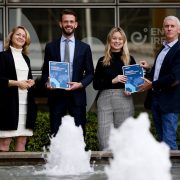




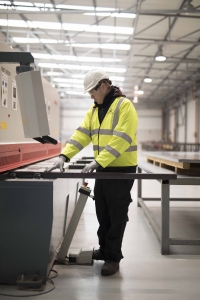 “We wanted to grow the company internationally and we wanted to become the leading international player in high-tech modular construction, to do this we knew we needed to grow our team and partner with the right organisations in our target markets,” Kevin says, explaining the reason behind Modubuild becoming an Enterprise Ireland client company in 2014. “We knew that Enterprise Ireland could introduce us to various partners in target markets and could also help us with funding to hire the additional staff we needed at the time.”
“We wanted to grow the company internationally and we wanted to become the leading international player in high-tech modular construction, to do this we knew we needed to grow our team and partner with the right organisations in our target markets,” Kevin says, explaining the reason behind Modubuild becoming an Enterprise Ireland client company in 2014. “We knew that Enterprise Ireland could introduce us to various partners in target markets and could also help us with funding to hire the additional staff we needed at the time.”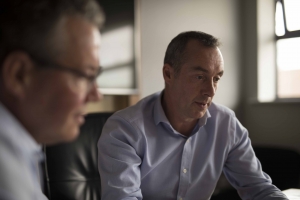


 “Secondly, there is a saving on direct costs. Think about the cashflow impact that putting a direct salesperson into the Benelux region has from day one: payroll costs, expenses, and associated costs.
“Secondly, there is a saving on direct costs. Think about the cashflow impact that putting a direct salesperson into the Benelux region has from day one: payroll costs, expenses, and associated costs.